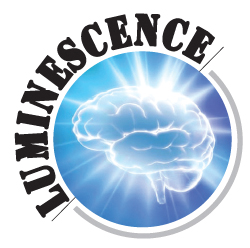 In a world where words have tremendous power, they can lift someone’s spirit or, conversely, shatter their sense of self-worth. Often, an innocent person may find himself at the center of ferocious and malicious attacks, where words are weaponized to tear down character, question intentions, and undermine dignity.
In a world where words have tremendous power, they can lift someone’s spirit or, conversely, shatter their sense of self-worth. Often, an innocent person may find himself at the center of ferocious and malicious attacks, where words are weaponized to tear down character, question intentions, and undermine dignity.
In such situations, it is easy to feel overwhelmed, and the psychological impact can be devastating. However, there is one timeless truth that serves as an anchor in these storms of slander and spite: a clear and clean conscience can empower one to hold their head high, unswayed by the fury of others’ words.
When wielded with malice, words can become as destructive as any physical weapon. Innocent people, in particular, are vulnerable to these attacks because they often live with a transparent honesty that others may seek to exploit or tarnish. False accusations, character assassinations, and whisper campaigns are all common tools used by those driven by envy, insecurity, or vengeance.
 The effects of malicious words can reach deeply into the mind, often leading to self-doubt, anxiety, and a sense of alienation. Repeated slander can distort the way a person views themselves, shaking their confidence and robbing them of peace. In extreme cases, it can even alter the course of someone’s life, as reputations are marred and relationships strained. However, while the sting of such words is undeniable, their lasting impact hinges largely on one’s response.
The effects of malicious words can reach deeply into the mind, often leading to self-doubt, anxiety, and a sense of alienation. Repeated slander can distort the way a person views themselves, shaking their confidence and robbing them of peace. In extreme cases, it can even alter the course of someone’s life, as reputations are marred and relationships strained. However, while the sting of such words is undeniable, their lasting impact hinges largely on one’s response.
A clean conscience acts as a fortress of resilience, protecting the individual from the internal devastation that comes from malicious attacks. When one’s conscience is clear, they have the inner assurance that they have acted with integrity and honesty, even in the face of unfounded criticism. This moral clarity enables individuals to stand firm, without succumbing to the negativity that others try to impose on them.
This sense of self-assurance does not come from pride or arrogance but from the confidence that they have lived rightly, regardless of how others choose to interpret or judge them. This unshakable foundation allows them to face criticism with grace and poise, holding their heads high even as others attempt to pull them down.
When people truly understand themselves—when they know that they have acted rightly and truthfully—they are liberated from the tyranny of others’ perceptions. This self-knowledge offers a sense of serenity, allowing them to remain at peace within, regardless of external chaos.
Moreover, those with a clear conscience are often the least reactive to malicious attacks. They understand that responding to every critic or defending themselves against every unfounded allegation would drain them of their energy and distract them from their true purpose. Instead, they choose to focus on their own path, leaving others to grapple with their unfounded judgments.
Maintaining dignity in the face of venomous words is no easy feat. It requires emotional fortitude and the ability to view oneself independently of others’ opinions. People with a strong moral compass and a clear conscience are often able to rise above slander without feeling the need to retaliate.
Instead, such individuals embody a quiet strength, showing that no amount of external negativity can disturb the internal calm that comes from self-assurance. In this way, a clear conscience becomes both a shield and a beacon of dignity. By choosing to remain unwavering, they demonstrate the futility of malicious attacks, showing others that true power lies not in lashing out but in remaining centered.
An interesting effect of integrity is that it often transcends words. People may attempt to tarnish an innocent person’s character, but in many cases, integrity speaks for itself. Over time, those who maintain a steadfast adherence to their values are often recognized for their authenticity. They may endure temporary hardship, but their true character inevitably shines through, inspiring respect from those who witness their strength.
This ripple effect of integrity cannot be achieved through self-defence or arguments; rather, it is the result of consistent actions that reflect one’s principles. By living honestly and letting their actions be the proof of their character, individuals with a clear conscience can outlast the temporary chaos of slander. Ultimately, their resilience leaves a lasting impression, becoming a source of inspiration for others.
In a world where words can be used to harm, possessing a clear and clean conscience is an invaluable source of strength. Though malicious attacks can be painful, they need not define one’s self-worth. Instead, they can serve as a reminder of the importance of living with integrity. A clear conscience gives individuals the courage to face adversity with dignity, enabling them to hold their heads high and remain unscathed by the storms of criticism.
True peace comes from knowing that one has acted rightly, regardless of what others may say. With this unwavering foundation, individuals can transcend negativity, emerging not as victims but as beacons of resilience and self-assurance. When one’s conscience is clear, they need not defend themselves against every accusation—they simply continue walking forward, knowing that, in the end, truth will prevail.







